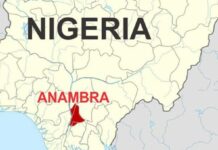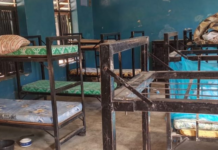I waited to read and reflect on the judgment before making this statement. Moments like this demand calm thinking and careful consideration.
The conviction of Mazi Nnamdi Kanu is a moment of deep emotion for many in the Southeast and across the country. I urge our youths, IPOB sympathisers, and all concerned citizens to remain calm and avoid actions that could deepen tension in an already fragile environment. Violence will not advance our collective cause; it will only multiply our losses. I ask you to trust that pathways to resolution will be fully explored
My earlier sympathy for IPOB stemmed from a simple democratic principle: the inalienable right of citizens to agitate peacefully within the bounds of the law.
That right is foundational to any society that aspires to justice. But no movement retains moral authority once its name becomes associated with killings, injuries, fear, and the disruption of ordinary life.
The Southeast has paid a heavy price; traders, travellers, young people, and security officers have all been victims. Any credible future engagement must begin with a clear renunciation of violence, the surrender of arms, and responsible acknowledgment of the harm caused by members, affiliates, and splinter groups.
On the judicial process, I must speak with clarity. In 2017, I played a quiet but decisive role in ensuring that the judiciary’s decision to grant Mazi Kanu bail—despite executive opposition—was respected. It was a reminder that our courts, even under intense pressure, can act with courage. I therefore reject any disparaging characterisation of the judges involved in this matter. We may question judgments, but we must never undermine the dignity of the judiciary. It remains one of the critical guardrails preserving our democracy.
That said, it is clear that the judgment has raised genuine concerns among legal experts and citizens alike, concerns about process, proportionality, and how the law was interpreted. These questions are legitimate in any democracy. Fortunately, our judicial system provides avenues for appeal, and I trust that the higher courts will address them with the fairness and thorough scrutiny they require.
At the same time, we must acknowledge that the Nigerian state is overstretched, battling insecurity on multiple fronts, managing economic hardship, and facing rising public distrust and global scrutiny. Force alone cannot hold a diverse nation together. Beyond the legal pathways open to Mazi Kanu, there is room for a structured political settlement: one that requires IPOB to renounce violence and accept responsibility, and the government to consider a supervised process of dialogue, rehabilitation, and reintegration.
History shows that when groups abandon violence and governments embrace dialogue, peace becomes possible. The Irish Republican Army entered a political process that led to the Good Friday Agreement. In Spain, ETA renounced violence, disarmed under international supervision, and eventually dissolved itself. These examples remind us that lasting peace is achieved not through victory or vengeance, but through accountability, courage, and negotiation.
Our nation has reached the edge of exhaustion. We must step back, not out of fear, but out of faith in our shared future. I call on the Presidency, the National Council of State, and leaders of conscience across Nigeria to help midwife a process of dialogue anchored on justice, peace, and national harmony.
Let this moment not become another scar on the conscience of our nation, but a turning point, where reason triumphs over resentment, and courage finds expression in reconciliation.
The destiny of Ndigbo will not be secured by anger or isolation but by wisdom, moral example, and strategic engagement with the rest of Nigeria. In turn, Nigeria must demonstrate fairness, inclusion, and justice to earn the trust of all its peoples: East, West, North and South.
The time to begin that journey again is now.





